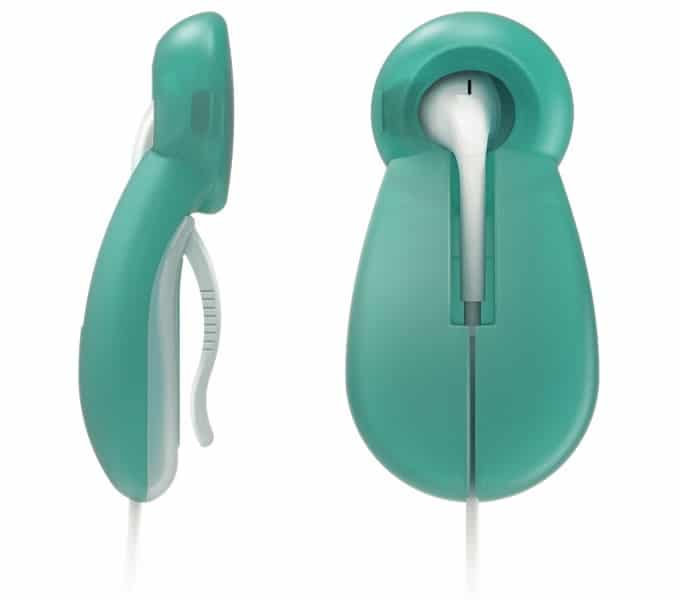8 Reasons to Play Music for Baby in the Womb
You love classic Beatles tunes, your spouse loves ’90s jams. Maybe your family is into daily dance parties or playing instruments like a guitar or a violin or you made your own (crafty!). Even if you just use a cookie sheet and a wooden spoon so you can exhaust your energy before bed, music is always surrounding you.
Music is a major part of all of our lives and if you have a little one on the way, you probably already know there is no reason to wait until baby makes their big debut to introduce them to your favorite genres.
You’re likely talking, reading, singing, and playing music for baby just as women have been doing for decades. In fact, moms-to-be love playing music for baby so much that the top 10 titles of pregnancy music albums on YouTube have been played 35 million times!
And it’s not a trend. There is a wealth of medical and scientific research from all around the world that supports the many benefits of playing music for baby in the womb and we’re sharing a few of them with you below.
KEEP SCROLLING FOR 8 REASONS TO PLAY MUSIC FOR BABY IN THE WOMB.
Babies Will Remember
According to new studies, newborn babies can remember music for up to a year after they’re born! That means the symphonies you play for them today, while still in the cozy confines of your bump, can still spark memory and interest for months after they arrive Earth-side!
Supports Brain Development
If your baby was born premature, you’ll be glad to note that playing and listening to all kinds of music can encourage early brain development. How? Experiencing music while in-utero (and after birth!) can help the brain make neuron connections, as well as assist with the growth of brain structures.
Stimulates Movement
Just as we feel the urge to bust a move out here, your baby is stimulated by music in-utero and you’ll be able to tell by the increases in their movement and heartbeat. Try it out! Use these Mbrio Clip-On Pregnancy Music Earbud Adapters and play a little tune for your babe. You’ll probably notice a big shift in their movement and get your kick counts in right away!
Patented earbud adapters like these from mbrio turn your earbuds into pregnancy headphones, which makes sharing music with your baby easy and comfortable. Just pop in any set of compatible earbuds, clip them to your waistband, and go! No need for splitters, sticky pads, volume control switches, or iPhone plug adapters. Plus, when used as directed, mbrio is 100% fail-safe as the volume reduction cannot by turned off or bypassed.
Prompts Prenatal Bonding
Music is a key part of prenatal bonding. Whether you’re listening to a soft song or singing your little one a lullaby, the tunes disperse calming chemicals throughout your body and into your placenta, which has a relaxing effect on both mom and baby.
Helps Sleep Patterns
Listening to music in the womb can have positive effects on newborn sleep patterns and what new parent doesn’t want that? Babies who were played music in the womb are said to calm and fall asleep much faster when listening to that same music after birth.
Lowers Stress and Anxiety
Pregnancy can be a chaotic and uneasy time for many moms-to-be, but listening to music during your three trimesters is often associated with lower levels of stress and anxiety. Feeling on edge? Try sitting back, placing your hands on your belly, and playing your favorite soothing tracks. Take a few deep breaths and you may begin to notice your stress melting away— baby will thank you too!
Can Help During Birth
Did you know moms who listen to music during the birth process were found to need lower levels of pain medication, and in some studies, have shorter labors? There are dozens of playlists for birth available for moms-to-be or consider downloading a Hypnobirthing track or meditation to help guide you through your birth with music and hushed tones.
Can Boost NICU Babies
Music therapy in neonatal intensive care units (NICU) can help the babies keep calm, feed better, and gain weight. In many studies, it was found that playing music for premature babies can help reduce their stress, decrease crying, improve sleep, and thus, reduce their overall stay within the NICU. We love this story of how music therapy helped one NICU baby who was born at just 29 weeks.
SO WHEN DO YOU START?
If you want to start playing music for your baby, the best time is around 24 weeks which is when your baby can begin to hear. But don’t pump those jams too loudly!
“You don’t want to blast your music too loudly because all of that amniotic fluid around baby conducts sound,” OB-GYN Kecia Gaither, MD, MPH, FACOG, director of perinatal services at Lincoln Medical and Mental Health Center in NYC told Monica + Andy. Instead, stick to music with a sound of approximately 50 decibels or less. “Women who are chronically exposed to sounds greater than 100-115 decibels were found to be at risk for preterm birth, low birth weight, increased congenital anomalies, [among other issues].”
You’ll also want to read our list of the Cleanest Baby Products You Can Buy or What to Pack in Your Hospital Bag for a Second Baby.


